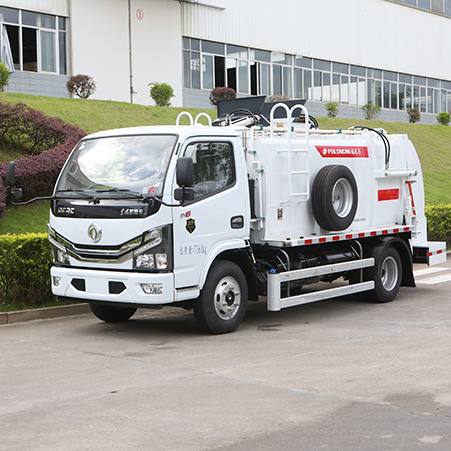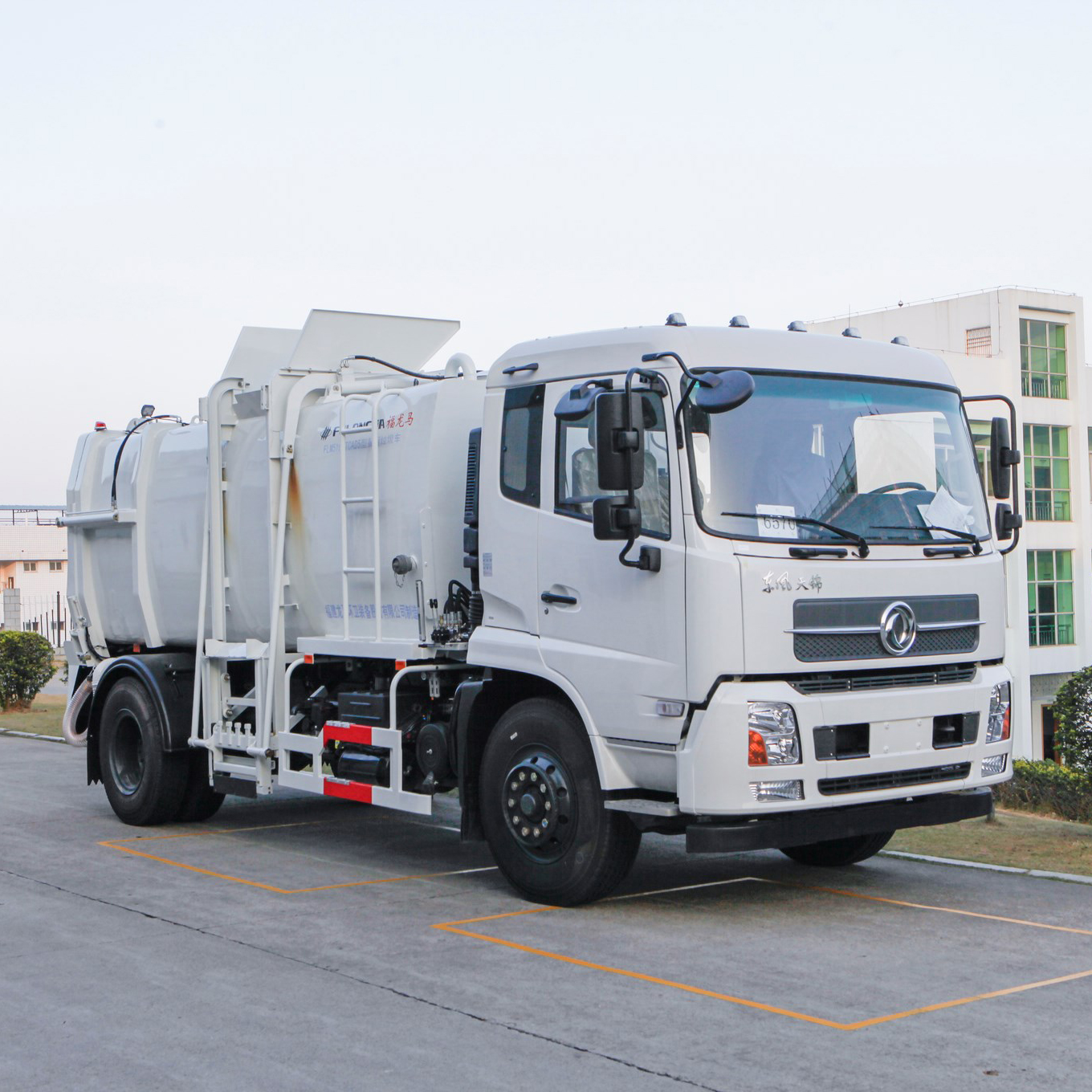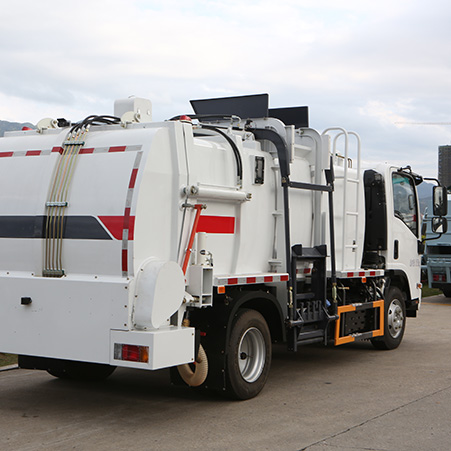In today’s world, waste management has become a critical concern as our global population continues to grow and urbanize. Among the various types of waste, kitchen waste poses a significant challenge. Kitchen waste, which includes food scraps, peels, leftovers, and other organic materials, is a major component of municipal solid waste. According to the Food and Agriculture Organization (FAO), approximately one-third of all food produced for human consumption is wasted, contributing to a staggering amount of kitchen waste. This not only represents a significant loss of resources but also poses environmental hazards. When improperly managed, kitchen waste decomposes in landfills, releasing methane, a potent greenhouse gas, and contributing to climate change.
Enter the kitchen garbage truck, a groundbreaking solution designed to tackle the specific challenges posed by kitchen waste. These trucks are equipped with advanced technologies and innovative features tailored to efficiently collect and process kitchen waste. By focusing on this particular type of waste, kitchen garbage trucks aim to streamline the collection process, enhance recycling and composting efforts, and ultimately reduce the environmental footprint of waste management.
What Are Kitchen Garbage Trucks?

Kitchen garbage trucks are specialized vehicles engineered to handle organic waste generated in kitchens. Unlike traditional garbage trucks that collect mixed waste, these trucks are dedicated to collecting only kitchen waste. They are equipped with separate compartments and advanced sorting mechanisms to ensure that the collected waste is processed appropriately. These trucks often feature compaction systems, odor control technologies, and even refrigerated compartments to maintain hygiene and prevent decomposition during transport.
How They Differ from Traditional Garbage Trucks
The primary difference between kitchen garbage trucks and traditional garbage trucks lies in their focus and design. Traditional garbage trucks collect all types of waste, often resulting in mixed loads that are challenging to sort and recycle. In contrast, kitchen garbage trucks are purpose-built for organic waste, allowing for more efficient collection and processing. Key differentiators include:
- Specialized Compartments: Kitchen garbage trucks have dedicated compartments for organic waste, ensuring that it is kept separate from other types of waste.
- Advanced Sorting Mechanisms: These trucks employ technologies to sort and process kitchen waste on the spot, reducing the need for extensive sorting at waste management facilities.
- Odor Control: Equipped with odor control systems, these trucks mitigate the unpleasant smells associated with kitchen waste.
- Refrigeration: Some kitchen garbage trucks feature refrigerated compartments to slow down decomposition and maintain hygiene.
Benefits of Kitchen Garbage Trucks
The adoption of kitchen garbage trucks offers a multitude of benefits across various dimensions:
Efficiency in Waste Collection
One of the most significant advantages of kitchen garbage trucks is their efficiency. By focusing solely on kitchen waste, these trucks streamline the collection process. Specialized compartments and sorting mechanisms allow for faster collection and less manual handling. This efficiency not only saves time but also reduces labor costs and operational expenses.

Environmental Advantages
Kitchen garbage trucks contribute significantly to environmental sustainability. By ensuring that kitchen waste is kept separate from other types of waste, these trucks facilitate more effective recycling and composting. Organic waste can be processed into compost or converted into biogas, reducing the amount of waste sent to landfills and cutting down on greenhouse gas emissions. Furthermore, the use of odor control systems and refrigerated compartments helps prevent the release of harmful gases during transport.
Hygiene and Sanitation
Maintaining hygiene and sanitation is a critical aspect of waste management, especially with organic waste that decomposes quickly. Kitchen garbage trucks are designed with features to address these concerns. Odor control systems minimize unpleasant smells, while refrigerated compartments slow down the decomposition process, reducing the risk of pest infestations and the spread of disease.
Kitchen garbage trucks represent a significant leap forward in the quest for sustainable waste management. By focusing on the unique challenges posed by kitchen waste, these specialized vehicles offer numerous benefits over traditional waste collection methods. From improved efficiency and environmental advantages to enhanced hygiene and cutting-edge technology, kitchen garbage trucks are poised to revolutionize how we handle organic waste.
FAQs
How do kitchen garbage trucks improve waste management efficiency?
Kitchen garbage trucks improve efficiency by using specialized compartments and sorting mechanisms that streamline the collection process, reducing the time and labor required for waste collection and processing.
What environmental benefits do kitchen garbage trucks offer?
These trucks facilitate better recycling and composting of organic waste, reducing the amount of waste sent to landfills and cutting down on greenhouse gas emissions.
How do kitchen garbage trucks maintain hygiene during waste collection?
Equipped with odor control systems and refrigerated compartments, kitchen garbage trucks minimize unpleasant smells and slow down decomposition, reducing the risk of pest infestations and disease spread.
What technological innovations are integrated into kitchen garbage trucks?
Many kitchen garbage trucks feature smart technologies such as GPS tracking, real-time data collection, IoT connectivity, and automated sorting systems, enhancing route planning, monitoring waste levels, and optimizing collection schedules.






